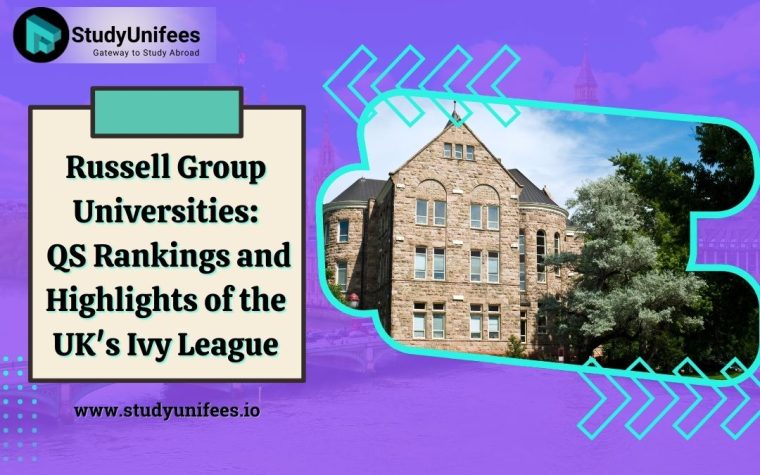Getting ready for the IELTS exam can feel like a long and tough journey, demanding consistent effort and focus. Keeping your IELTS motivation up throughout this process is crucial for hitting your target score. Here are 20 effective ways to stay motivated while preparing for the IELTS, plus a look at common pitfalls in each section of the test and how to overcome them.
20 Ways to Maintain IELTS Motivation
- Set Clear Goals: Define your target IELTS score and the specific sections you need to improve. Clear goals give you a sense of direction and purpose, which boosts your IELTS motivation.
- Create a Study Schedule: Establish a consistent study routine with specific times dedicated to IELTS preparation. A structured schedule helps maintain your IELTS motivation by creating a habit.
- Break Down Tasks: Divide your study material into manageable chunks. Tackling smaller tasks keeps you from feeling overwhelmed and sustains your IELTS motivation.
- Reward Yourself: Celebrate small victories along the way. Rewarding yourself for meeting study goals reinforces positive behavior and keeps your IELTS motivation high.
- Join Study Groups: Studying with peers can make the process more enjoyable and less isolating. Sharing tips and experiences can boost your IELTS motivation.
- Use Practice Tests: Regularly take practice tests to track your progress. Seeing improvement in your scores is a great way to maintain IELTS motivation.
- Stay Organized: Keep your study materials and notes well-organized. An organized study environment helps you stay focused and motivated.
- Visualize Success: Imagine yourself achieving your target score and the opportunities it will bring. Visualization techniques can significantly boost your IELTS motivation.
- Stay Healthy: Ensure you get enough sleep, eat healthily, and exercise regularly. Physical well-being supports mental focus and IELTS motivation.
- Avoid Burnout: Take regular breaks and allow yourself time to relax. Overworking can lead to burnout and diminish your IELTS motivation.
- Seek Feedback: Regularly seek feedback from teachers or peers. Constructive criticism helps you identify areas for improvement and keeps your IELTS motivation on track.
- Stay Positive: Maintain a positive attitude and remind yourself of your progress. Positive thinking is crucial for sustaining IELTS motivation.
- Track Your Progress: Keep a journal of your study activities and progress. Seeing how far you’ve come can be a great source of IELTS motivation.
- Stay Informed: Keep up-to-date with the latest IELTS tips and strategies. Continuous learning keeps your study sessions interesting and boosts IELTS motivation.
- Use Diverse Resources: Incorporate a variety of study materials, such as books, online courses, and apps. Diverse resources prevent boredom and maintain motivation.
- Set Milestones: Create intermediate milestones on your way to your ultimate goal. Achieving these smaller milestones gives you a sense of accomplishment and keeps your motivation high.
- Find a Study Buddy: Pair up with someone who has similar goals. A study buddy can provide mutual support and enhance your IELTS exam motivation.
- Stay Curious: Approach your study with curiosity and a desire to learn.
- Join Online Forums: Participate in online communities and forums focused on IELTS preparation.
- Keep the End Goal in Mind: Constantly remind yourself of why you are taking the IELTS.
Common Pitfalls in Each Section of the IELTS Motivation and How to Overcome Them
Listening Section
- Pitfall: Losing concentration during the audio playback.
- Solution: Practice active listening and take notes effectively. Regular practice with different accents can improve focus and listening skills.
Reading Section
- Pitfall: Struggling with time management.
- Solution: Practice skimming and scanning techniques to quickly identify key information. Timed practice sessions help improve speed and efficiency.
Writing Section
- Pitfall: Difficulty in organizing thoughts coherently.
- Solution: Plan your essays before writing. Create outlines to structure your thoughts and arguments clearly. Regular practice with feedback helps improve coherence.
Speaking Section
- Pitfall: Nervousness affecting performance.
- Solution: Practice speaking English regularly with friends, teachers, or language partners. Simulate exam conditions to build confidence. Overcoming nervousness enhances performance and IELTS motivation.
Additional Tips for Overcoming Pitfalls and Maintaining Motivation
Listening
- Pitfall: Difficulty in understanding different accents.
- Solution: Listen to a variety of English media, such as podcasts, news channels, and movies. Exposure to different accents improves comprehension and IELTS motivation.
Reading
- Pitfall: Difficulty in understanding complex vocabulary.
- Solution: Build your vocabulary by reading extensively and using flashcards. A strong vocabulary enhances comprehension and boosts IELTS motivation.
Writing
- Pitfall: Running out of ideas during the essay.
- Solution: Brainstorm potential essay topics and create idea banks. Familiarity with various topics helps generate ideas quickly.
Speaking
- Pitfall: Inability to think of responses quickly.
- Solution: Practice answering common IELTS speaking questions. Quick thinking improves fluency and confidence, enhancing IELTS motivation.
Listening
- Pitfall: Missing key information during the audio.
- Solution: Practice predicting possible answers based on the context. Anticipation skills help capture key information and maintain IELTS motivation.
Reading
- Pitfall: Misinterpreting questions.
- Solution: Carefully analyze the question stem and options. Understanding the questions correctly ensures accurate answers and boosts IELTS motivation.
Writing
- Pitfall: Overly complex sentences leading to grammatical errors.
- Solution: Focus on writing clear and concise sentences. Clarity reduces errors and enhances readability, maintaining IELTS motivation.
Speaking
- Pitfall: Repeating the same vocabulary.
- Solution: Expand your vocabulary by learning synonyms and practicing varied sentence structures. Rich vocabulary enhances responses and IELTS motivation.
Listening
- Pitfall: Difficulty in multitasking (listening and writing).
- Solution: Practice note-taking while listening to improve multitasking skills. Effective multitasking enhances performance and IELTS motivation.
Reading
- Pitfall: Inability to find specific information quickly.
- Solution: Practice scanning techniques to locate information swiftly. Efficient information retrieval boosts confidence and IELTS motivation.
Writing
- Pitfall: Lack of coherence in paragraphs.
- Solution: Use linking words and phrases to connect ideas smoothly. Coherence in writing enhances readability and maintains IELTS motivation.
Speaking
- Pitfall: Speaking too fast or too slow.
- Solution: Practice speaking at a natural pace. Balanced speed ensures clarity and confidence, boosting IELTS motivation.
Listening
- Pitfall: Overwhelmed by long listening passages.
- Solution: Break down the passages into smaller segments and focus on key points. Segmenting passages makes them manageable and maintains IELTS motivation.
Reading
- Pitfall: Difficulty in understanding implied meanings.
- Solution: Practice inferencing skills by reading between the lines. Understanding implications improves comprehension and IELTS motivation.
Writing
- Pitfall: Overuse of passive voice.
- Solution: Balance active and passive voice in your writing. Active voice makes writing more dynamic and engaging, maintaining IELTS motivation.
Speaking
- Pitfall: Monotone speech.
- Solution: Practice varying your intonation and stress patterns. Dynamic speech makes your responses more interesting and boosts IELTS motivation.
Listening
- Pitfall: Difficulty in understanding fast speakers.
- Solution: Gradually increase the playback speed of practice audios. Adapting to faster speech improves comprehension and IELTS motivation.
Reading
- Pitfall: Losing track of time.
- Solution: Use a timer during practice sessions to manage time effectively.
Writing
- Pitfall: Failing to address all parts of the task.
- Solution: Carefully read the task instructions and ensure all parts are addressed. Comprehensive responses enhance scores and maintain IELTS exam motivation.
Speaking
- Pitfall: Using filler words excessively.
- Solution: Practice speaking smoothly without fillers by recording and reviewing your responses. Smooth speech improves fluency and IELTS motivation.
By addressing these common pitfalls and employing strategies to overcome them, you can maintain your IELTS exam motivation throughout your study journey. Consistent effort, positive thinking, and effective study techniques will help you achieve your desired IELTS score and open doors to new opportunities. Remember, staying motivated is key to success in the IELTS exam. Keep pushing forward, and you’ll reach your goals.
Keeping your motivation up during your IELTS study journey is crucial for reaching your target score. By setting clear goals, creating a structured study schedule, breaking down tasks, rewarding yourself, and seeking support from study groups or a study buddy, you can stay motivated. Using diverse resources, staying organized, visualizing success, and prioritizing your health are also essential strategies. Additionally, addressing common pitfalls in each section of the test with targeted solutions will further enhance your preparation.
Remember to stay positive, track your progress, and continuously seek feedback to sustain your motivation. With consistent effort, effective study techniques, and a strong mindset, you can achieve your IELTS goals and unlock new opportunities.
For further guidance and support on IELTS, you can also take help from an IELTS counselor. Study Unifees, the best IELTS coaching, has excellent IELTS experts who can assist you in your IELTS exam preparation. Keep pushing forward, and you’ll reach your goals.










